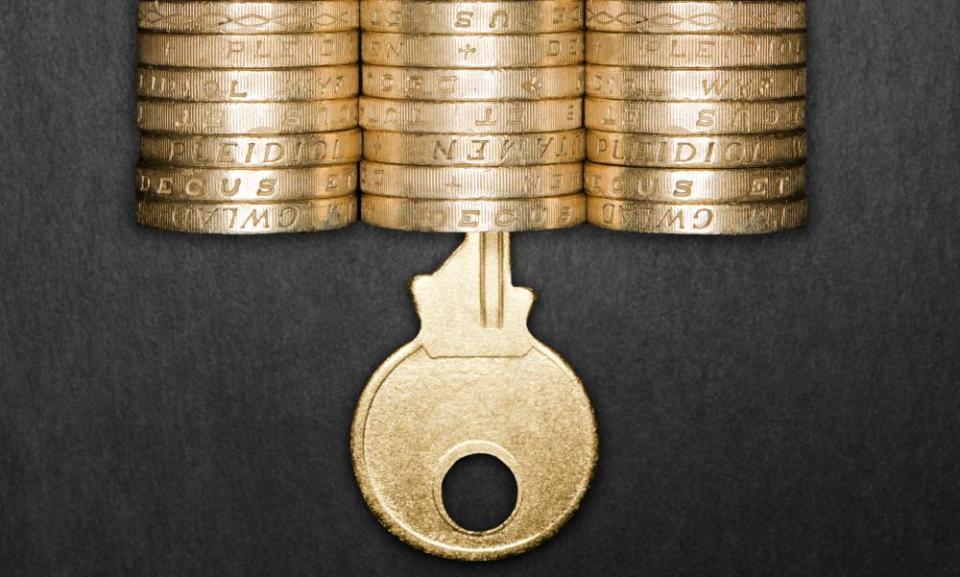Should UK pensioners be forced to pay the bill for coronavirus?

If you are a pensioner, you have been under virtual house arrest during the coronavirus crisis. You have been barred from any physical contact with your wider family. If you have been in a care home, government failures have left you catastrophically exposed. And yet at the same time, there are plenty of voices in government circles arguing that you should pay the bill for the virus.
A month ago a broadly centrist thinktank, the Social Market Foundation (SMF), said a key element of the so-called “triple lock” on the state pension should be scrapped, to save £20bn.
If you are unfamiliar with the triple lock, it’s one of the cornerstones of UK state pensions. It ensures the state pension increases each year by the highest of earnings, price inflation or 2.5%. The SMF argued that the 2.5% guarantee should be removed.
Related: Coronavirus UK: call to scrap 'triple lock' on pensions after crisis
Leaked Treasury documents last week suggested that an end to the triple lock is indeed on the table as the government grapples with the expected £300bn cost of the pandemic.
The promise was intended to lift pensioners out of poverty, and it has gone some way to achieving that aim. Analysis conducted in 2017 by the Institute of Fiscal Studies showed that between April 2010 and April 2016, the value of the state pension increased by 22.2%, compared with growth in earnings of 7.6% and growth in prices of 12.3% over the same period.
The SMF argued that “in the post-crisis world of slow, painful recovery, a triple lock ensuring a 2.5% minimum rise in pensions would constitute enormous generosity to pensioners, at a time when working-age adults face low or no wage growth and significant unemployment”
It’s a seductive argument. The young are indeed taking the economic brunt of coronavirus, with youth unemployment already soaring. Graduates this year will be entering the worst labour market for decades. Why should they be the victims of austerity round two?
Yet it ignores a basic fact about our very basic state pension in the UK. Yes, the triple lock means the value of the state pension has moved up in value. But it still remains one of the worst in Europe, and axing the guaranteed 2.5% increases will hit the poorest pensioners hard.
Comparing state pensions around Europe is phenomenally difficult, but by any measure the UK’s is pretty lousy. In 2019 FullFact.org tried to check figures circulating on Facebook, which suggested (at the time) that state pensions in France, Spain and Germany were double those in the UK.
It could not determine exact figures, but did find evidence that an average UK pensioner’s income from “mandatory” savings is worth 29% of their earnings at retirement, compared with 51% in Germany, 75% in France and 82% in Spain. In the UK, private pension savings will increase that figure substantially, but fail to meet the levels of France or Spain.
The European country with a state pension most similar to the UK, Ireland, pays up to €248.30 – that’s £221.31 at current rates – compared with the maximum of £175.20 in the UK. So Irish pensioners get 26% more than British pensioners, yet we are considering trimming ours back.
There is much debate around “intergenerational fairness” which falls into the trap of “us versus them”. In truth, there are many, many rich pensioners – and many, many poor ones. A friend of mine revealed how he was staggered to discover that his recently-deceased elderly father’s pension (from a final salary scheme) was more than £60,000 a year. Yet he got the winter fuel allowance, free TV licence, free prescriptions and so on. But that’s small beer in comparison with the huge tax giveaway he got – the pensioners’ exemption from national insurance.
Currently workers pay 12% NI on earnings above £9,516 a year, dropping to 2% on earnings over £50,024 a year. But your liability ends once you reach state pension age. My friend’s father saved saved more than £5,000 a year from being exempt from NI.
It’s a big loophole (though of course the number of pensioners receiving £60,000 a year or more is relatively small). Yes, NI is supposedly an insurance fund that pays for state pensions, but in reality that is notional only and the money goes into the general tax pool, paying towards the NHS as well.
Maybe there should be a targeted lifting of the NI exemption – such as requiring that pensioners pay a half-rate of NI on incomes above a certain level, perhaps something like £25,000 a year. It would still raise significant sums and ensure that only the better off contribute, while enabling us to maintain the triple lock and gradually lift more pensioners out of poverty.

 Yahoo Finance
Yahoo Finance 